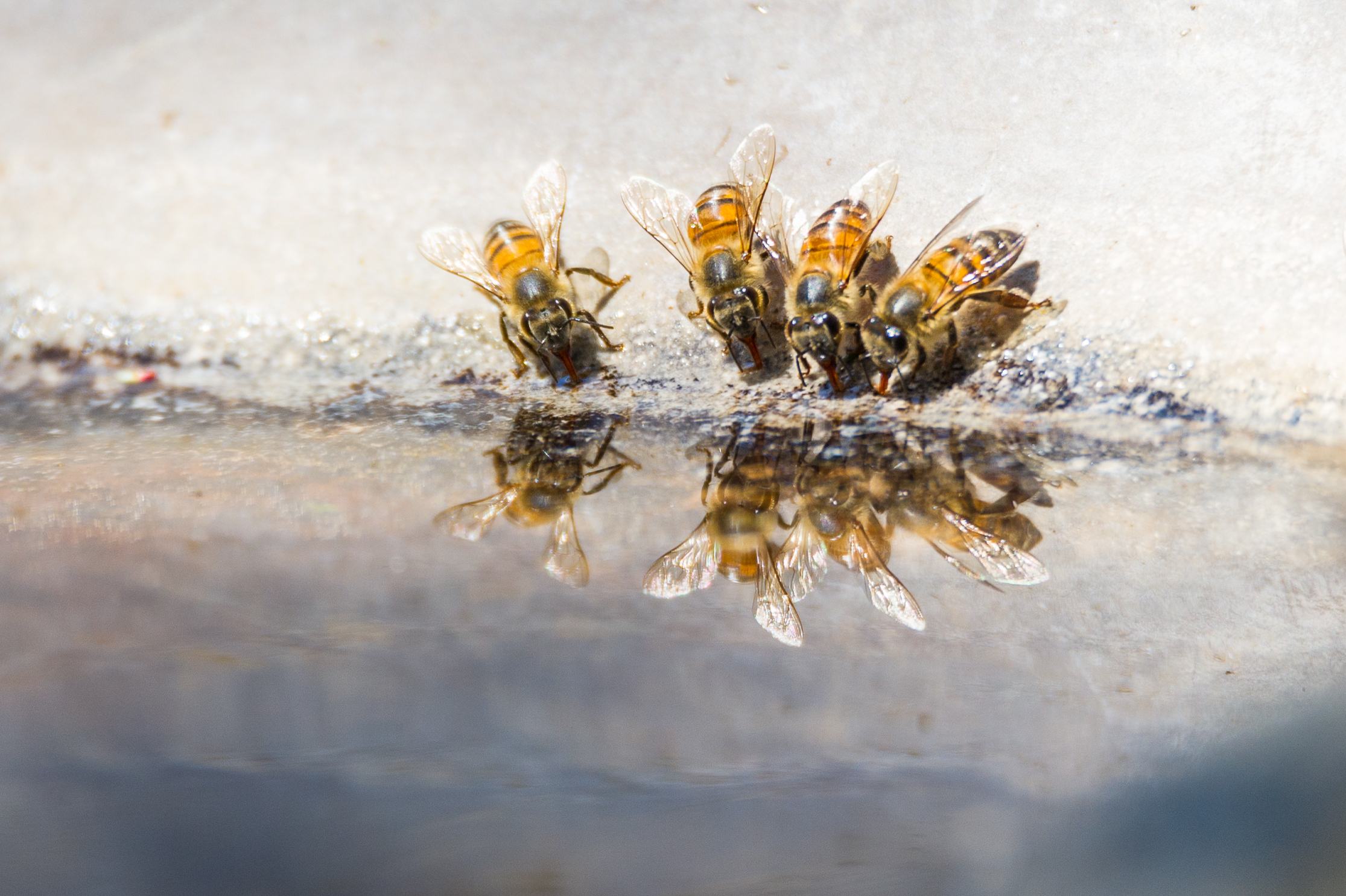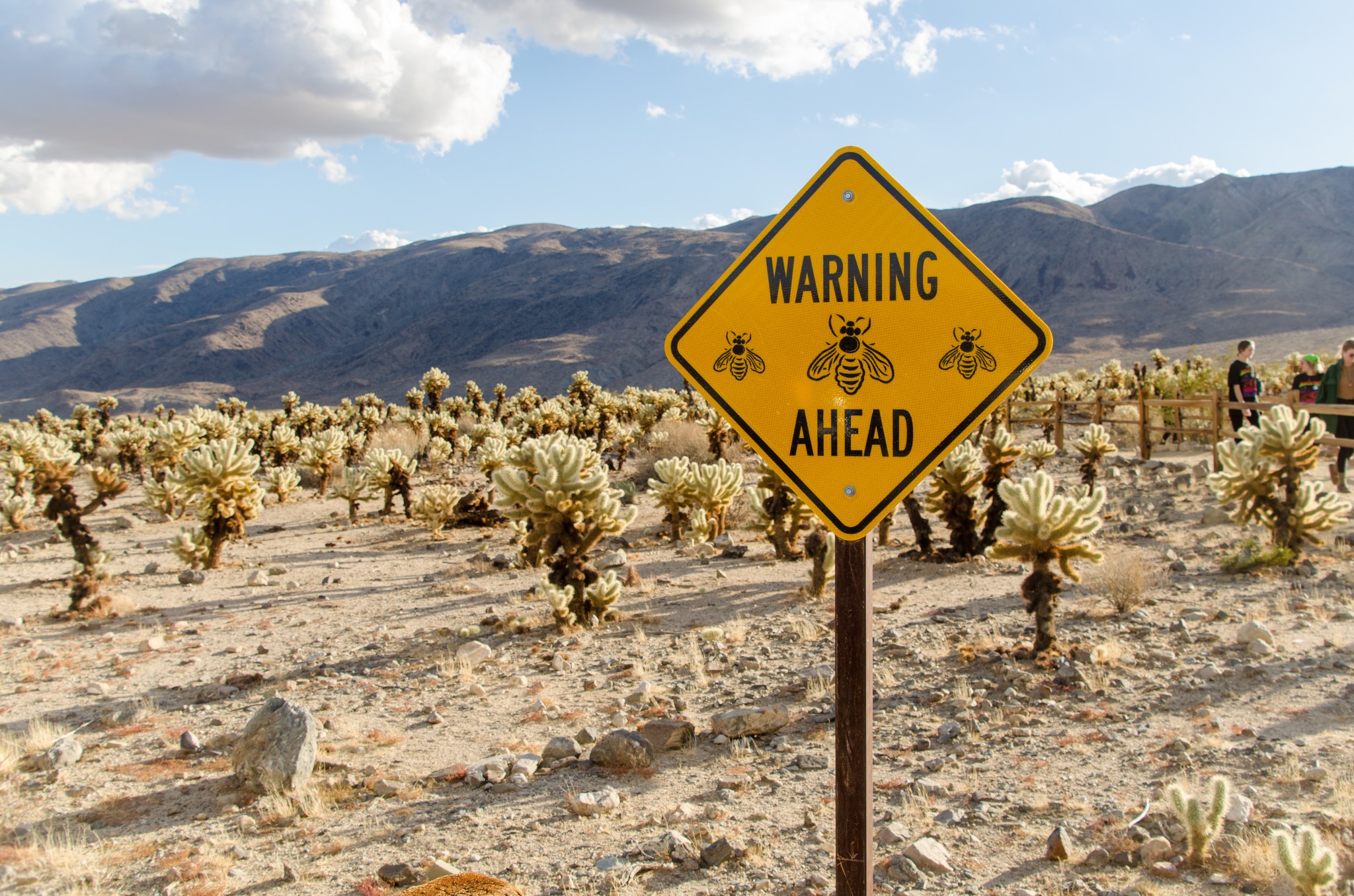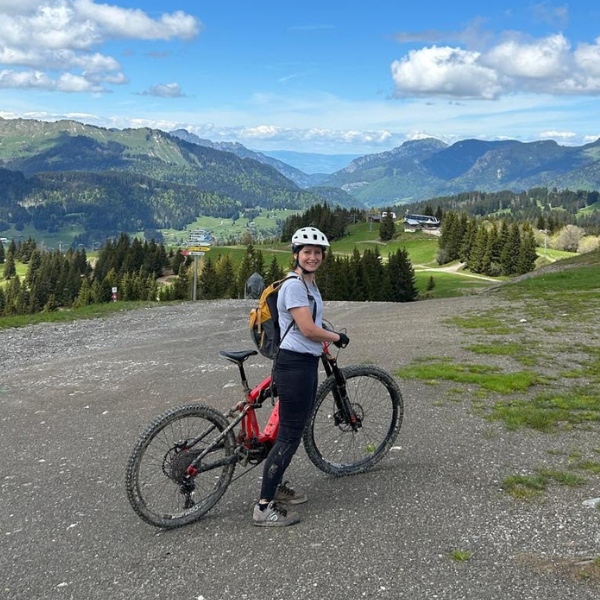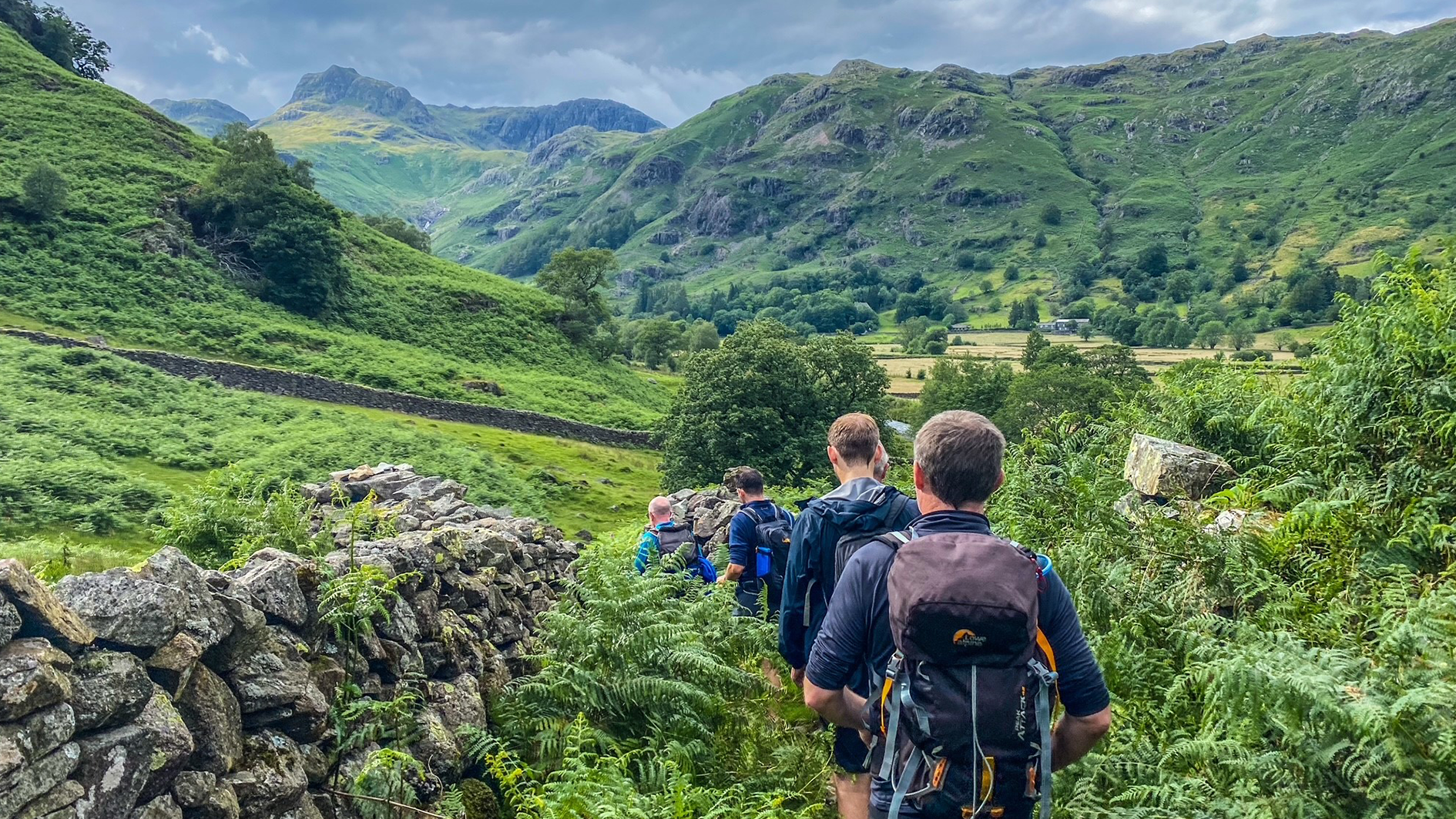Thirsty bees force officials to close areas of Joshua Tree National Park
As water runs low, bees look to humans for sources of hydration, and they'll even try to drink your sweat

Areas of Joshua Tree National Park, including Cottonwood Visitor Center, parking area, restrooms and Cottonwood campground, have been closed due to increased bee activity.
Park officials have explained that in the summer, water becomes scarce and bees seek alternative sources of hydration. This can include water in bathrooms, condensation from air conditioners, and even visitor sweat.
They are closing the Cottonwood area to visitors for safety and to reduce the moisture that attracts the bees. This closure will reduce the water available for bees and encourage them to disperse.
Officials have confirmed that the bees are the aggressive honeybee type, and it’s not the first time areas of Joshua Tree National Park have been closed because of them. In 2020 Jumbo Rocks and Cottonwood had to be sealed off because of big spikes in the numbers of swarming bees.
Stay safe around bees
Last year, Joshua Tree National Park officials offered the following advice to stay safe around bees.
- If you are allergic to bee stings, appropriate medication and consider avoiding recreating in areas with large amounts of bees. Consider visiting the park in the cool, winter season when bees are less active.
- If you are around bees, do not jerk toward or away from them, jump up and down, or swat at them. Instead, move away from them slowly and remain calm. These animals are focused on getting water.
- Keep all water or liquids tightly sealed and turn off your car air conditioner 5 minutes before arriving in a bee-heavy area. It is common to see these animals swarming around open water bottles and underneath cars to grab a quick drink.
- Wear long-sleeved, sweat-wicking clothing to prevent attracting bees. Breathable layers can provide extra protection from stings and the heat of the sun.

Officials also reassured visitors: “Bees are an essential part of Joshua Tree’s desert ecosystem. Just like any other wildlife in the park, this is their home. We ask that you please treat them respectfully, and they will do the same.”
Advnture Newsletter
All the latest inspiration, tips and guides to help you plan your next Advnture!

Charlie is a freelance writer and editor with a passion for hiking, biking, wild swimming and active travel. She recently moved from Bristol to South Wales and now refuses to leave her front door without one of the following: lightweight hikers, wetsuit, mountain bike, tent. Having bought a fixer-upper home that backs on to protected woodland, her love of nature and wildlife has intensified and the dark skies have kickstarted a new fondness for stargazing.
